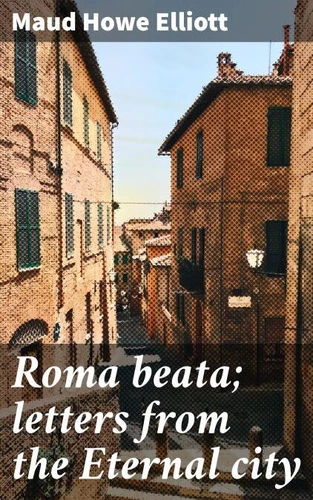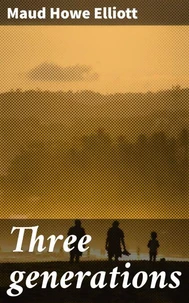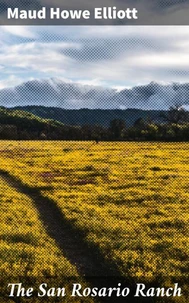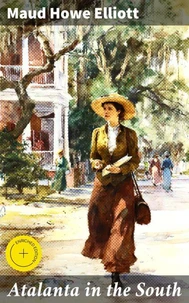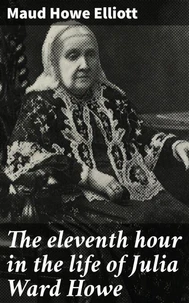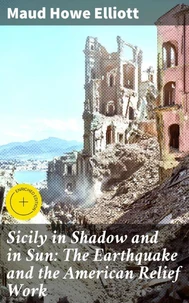Roma beata; letters from the Eternal city. A Captivating Journey Through Rome's Timeless Beauty
Par :Formats :
Disponible dans votre compte client Decitre ou Furet du Nord dès validation de votre commande. Le format ePub est :
- Compatible avec une lecture sur My Vivlio (smartphone, tablette, ordinateur)
- Compatible avec une lecture sur liseuses Vivlio
- Pour les liseuses autres que Vivlio, vous devez utiliser le logiciel Adobe Digital Edition. Non compatible avec la lecture sur les liseuses Kindle, Remarkable et Sony
 , qui est-ce ?
, qui est-ce ?Notre partenaire de plateforme de lecture numérique où vous retrouverez l'ensemble de vos ebooks gratuitement
Pour en savoir plus sur nos ebooks, consultez notre aide en ligne ici
- Nombre de pages758
- FormatePub
- ISBN406-4-06-613465-5
- EAN4064066134655
- Date de parution19/12/2019
- Protection num.Digital Watermarking
- Taille2 Mo
- Infos supplémentairesepub
- ÉditeurGOOD PRESS
Résumé
In "Roma Beata: Letters from the Eternal City, " Maud Howe Elliott crafts a beautifully evocative narrative that transports readers to the heart of Rome in the late 19th century. The book comprises a series of personal letters, penned with lyrical elegance and rich descriptive detail, illustrating not only the breathtaking beauty and allure of the city but also its intricate cultures, historical depth, and the vibrant social fabric of the time.
Elliott'Äôs literary style is imbued with a keen observational quality, reflecting an acute awareness of the interplay between the sacred and the profane that defines the Eternal City, thus situating her work within the broader context of travel literature and women'Äôs writing during this period. Maud Howe Elliott, an accomplished author and a prominent figure of her time, was steeped in the artistic and literary circles of her era.
A daughter of the famous suffragist Julia Ward Howe, her exposure to progressive ideologies and artistic endeavors likely influenced her perspective as she sought to document the Rome she encountered, blending personal experience with broader cultural reflections. Her letters not only reveal her own intellectual journey but also resonate with the evolution of women'Äôs voices in literature. "Roma Beata" is a delightful invitation for readers to experience Rome through the eyes of a perceptive traveler.
Scholars of travel literature, as well as those who simply appreciate beautifully composed prose, will find Elliott's observations both poignant and profound. This book serves as a captivating exploration of a city that continues to inspire and enchant, making it a must-read for anyone eager to understand the enduring allure of Rome.
Elliott'Äôs literary style is imbued with a keen observational quality, reflecting an acute awareness of the interplay between the sacred and the profane that defines the Eternal City, thus situating her work within the broader context of travel literature and women'Äôs writing during this period. Maud Howe Elliott, an accomplished author and a prominent figure of her time, was steeped in the artistic and literary circles of her era.
A daughter of the famous suffragist Julia Ward Howe, her exposure to progressive ideologies and artistic endeavors likely influenced her perspective as she sought to document the Rome she encountered, blending personal experience with broader cultural reflections. Her letters not only reveal her own intellectual journey but also resonate with the evolution of women'Äôs voices in literature. "Roma Beata" is a delightful invitation for readers to experience Rome through the eyes of a perceptive traveler.
Scholars of travel literature, as well as those who simply appreciate beautifully composed prose, will find Elliott's observations both poignant and profound. This book serves as a captivating exploration of a city that continues to inspire and enchant, making it a must-read for anyone eager to understand the enduring allure of Rome.
In "Roma Beata: Letters from the Eternal City, " Maud Howe Elliott crafts a beautifully evocative narrative that transports readers to the heart of Rome in the late 19th century. The book comprises a series of personal letters, penned with lyrical elegance and rich descriptive detail, illustrating not only the breathtaking beauty and allure of the city but also its intricate cultures, historical depth, and the vibrant social fabric of the time.
Elliott'Äôs literary style is imbued with a keen observational quality, reflecting an acute awareness of the interplay between the sacred and the profane that defines the Eternal City, thus situating her work within the broader context of travel literature and women'Äôs writing during this period. Maud Howe Elliott, an accomplished author and a prominent figure of her time, was steeped in the artistic and literary circles of her era.
A daughter of the famous suffragist Julia Ward Howe, her exposure to progressive ideologies and artistic endeavors likely influenced her perspective as she sought to document the Rome she encountered, blending personal experience with broader cultural reflections. Her letters not only reveal her own intellectual journey but also resonate with the evolution of women'Äôs voices in literature. "Roma Beata" is a delightful invitation for readers to experience Rome through the eyes of a perceptive traveler.
Scholars of travel literature, as well as those who simply appreciate beautifully composed prose, will find Elliott's observations both poignant and profound. This book serves as a captivating exploration of a city that continues to inspire and enchant, making it a must-read for anyone eager to understand the enduring allure of Rome.
Elliott'Äôs literary style is imbued with a keen observational quality, reflecting an acute awareness of the interplay between the sacred and the profane that defines the Eternal City, thus situating her work within the broader context of travel literature and women'Äôs writing during this period. Maud Howe Elliott, an accomplished author and a prominent figure of her time, was steeped in the artistic and literary circles of her era.
A daughter of the famous suffragist Julia Ward Howe, her exposure to progressive ideologies and artistic endeavors likely influenced her perspective as she sought to document the Rome she encountered, blending personal experience with broader cultural reflections. Her letters not only reveal her own intellectual journey but also resonate with the evolution of women'Äôs voices in literature. "Roma Beata" is a delightful invitation for readers to experience Rome through the eyes of a perceptive traveler.
Scholars of travel literature, as well as those who simply appreciate beautifully composed prose, will find Elliott's observations both poignant and profound. This book serves as a captivating exploration of a city that continues to inspire and enchant, making it a must-read for anyone eager to understand the enduring allure of Rome.

